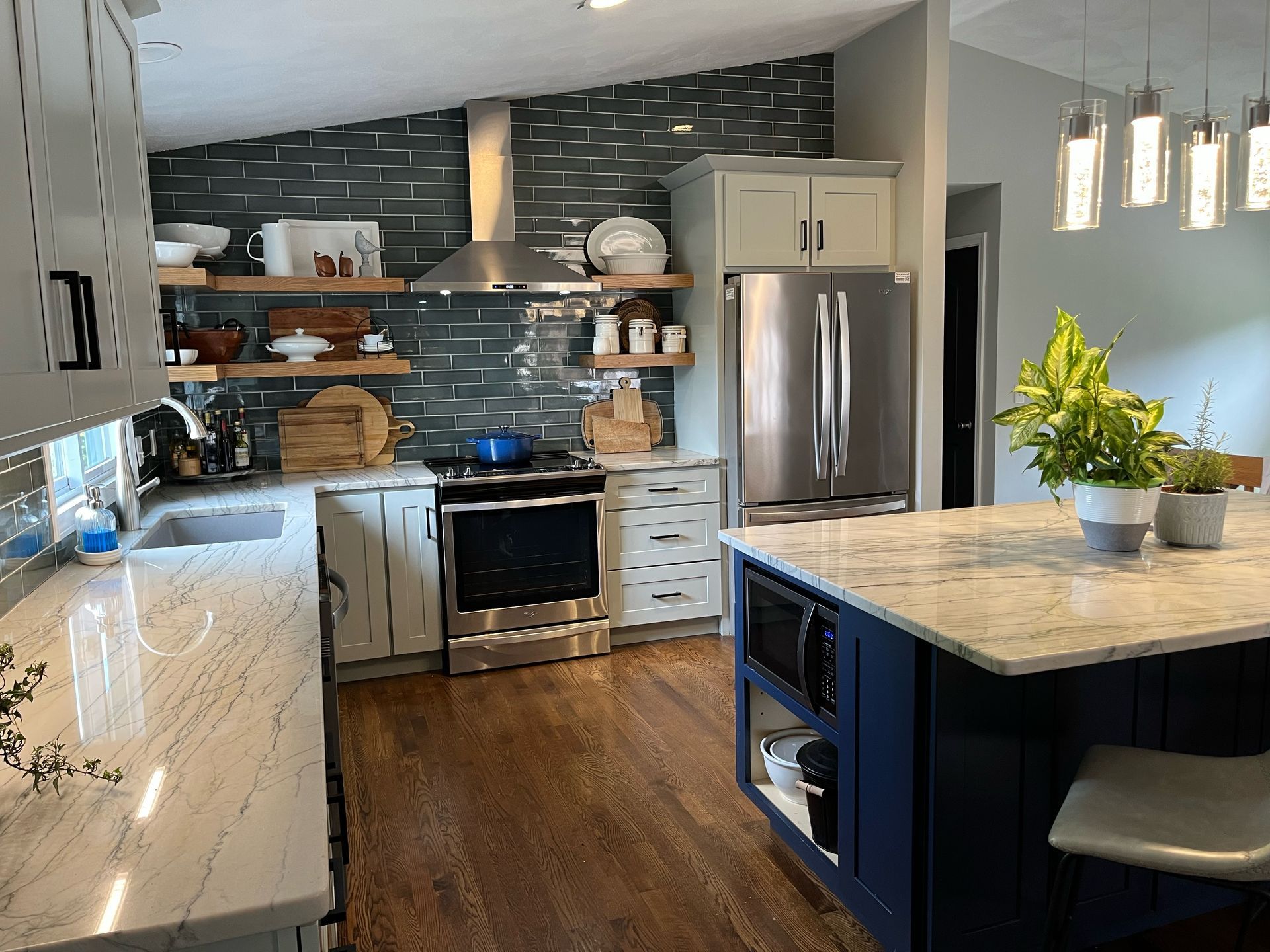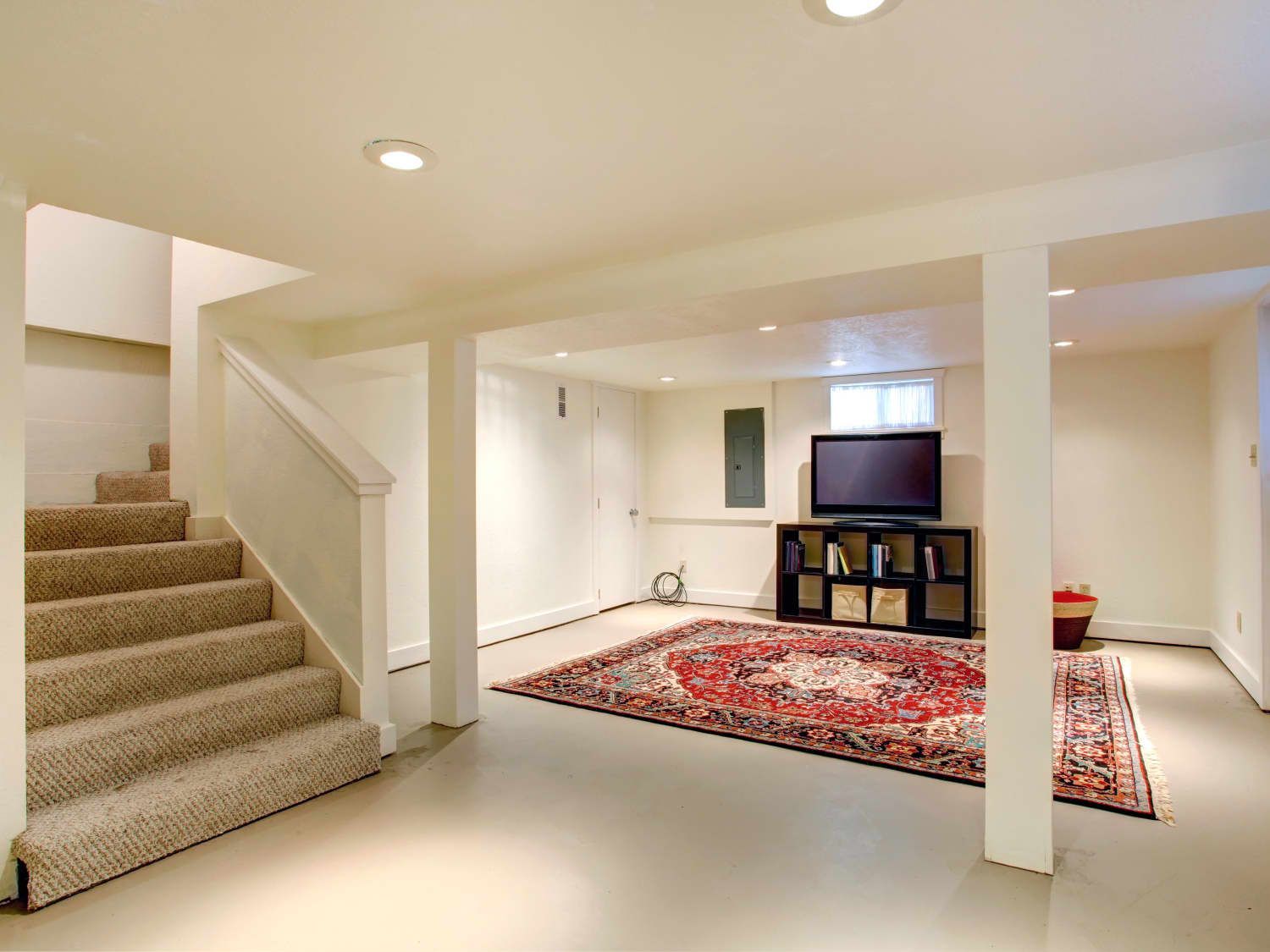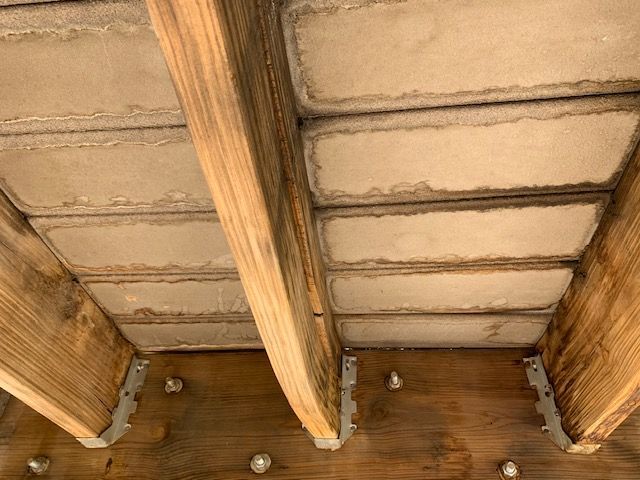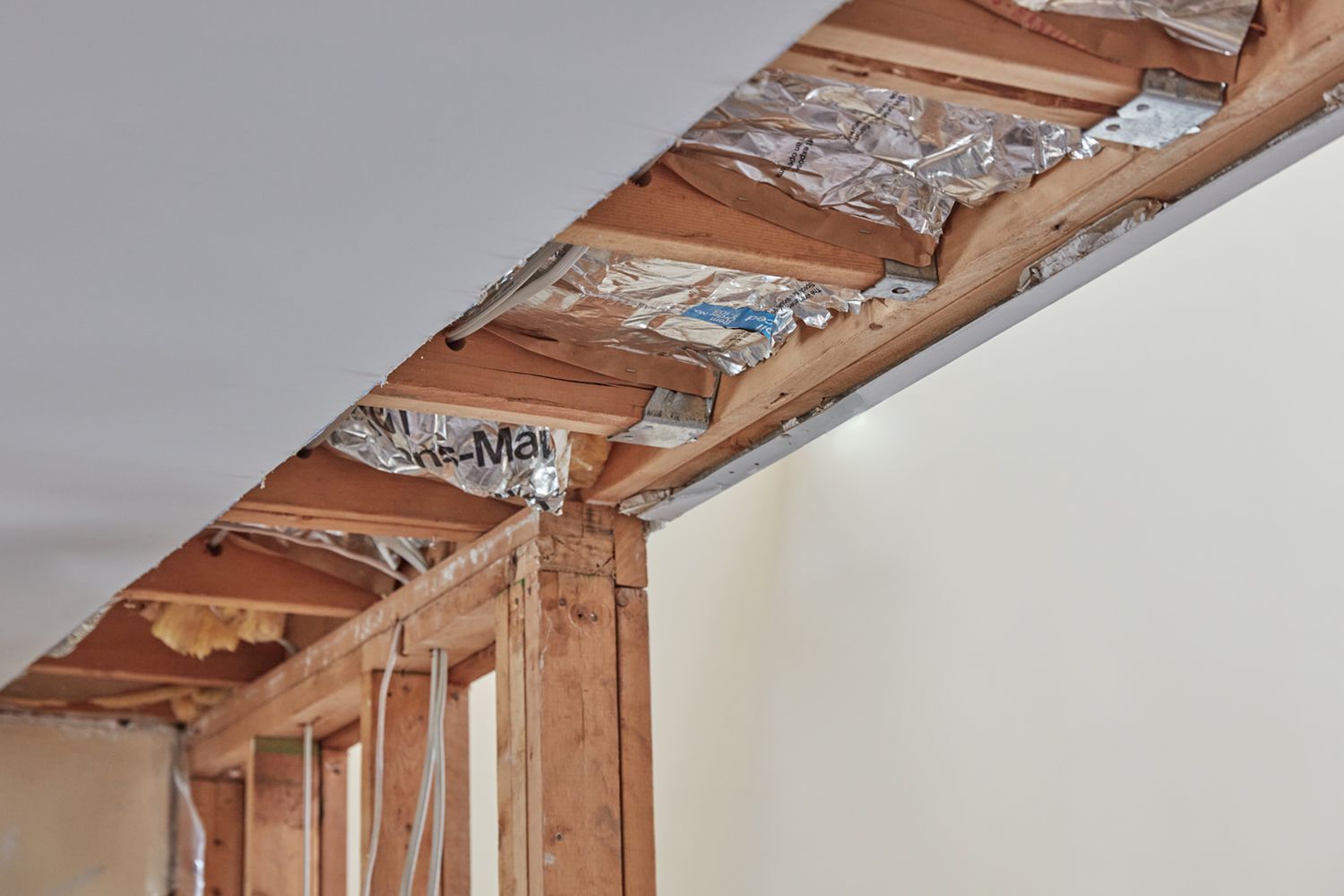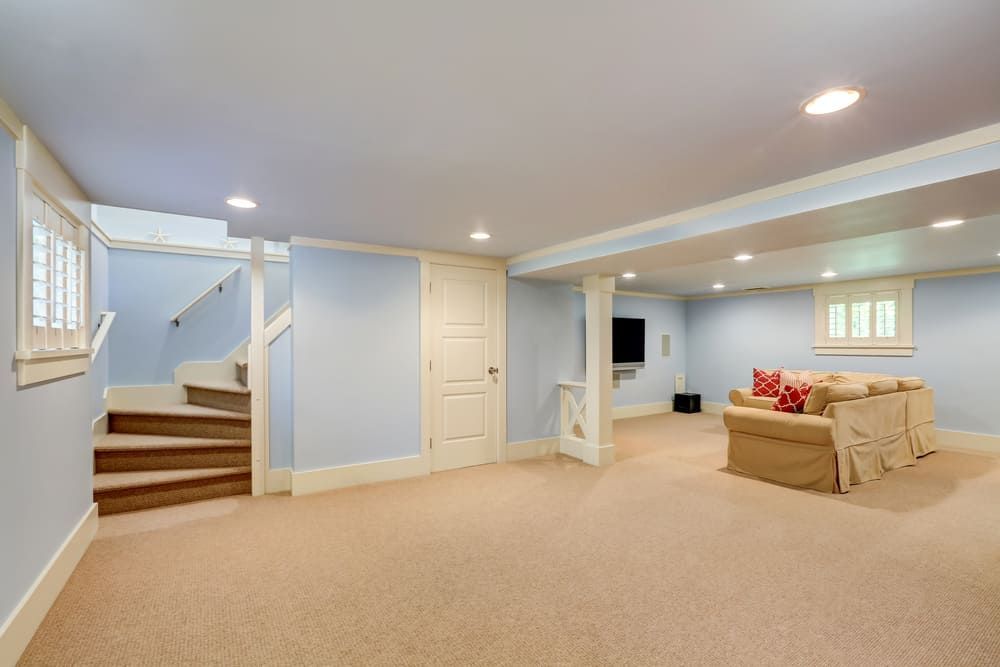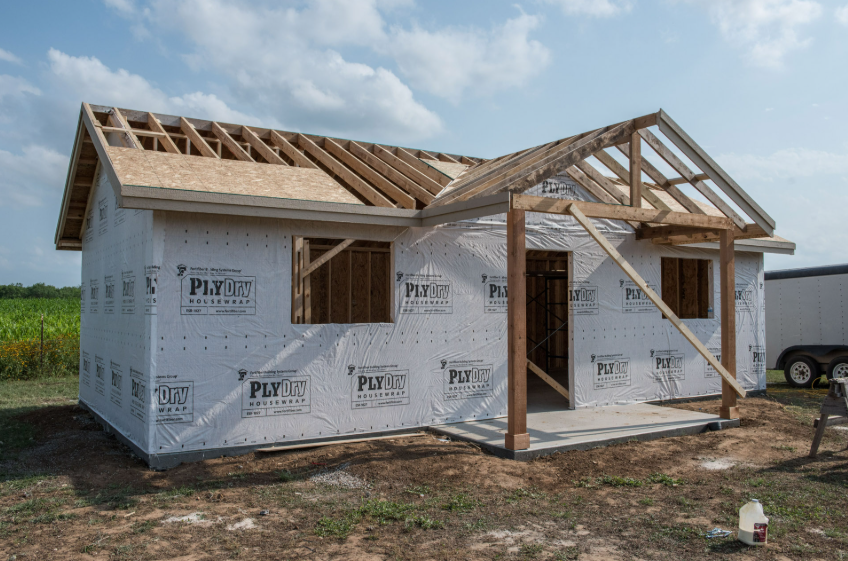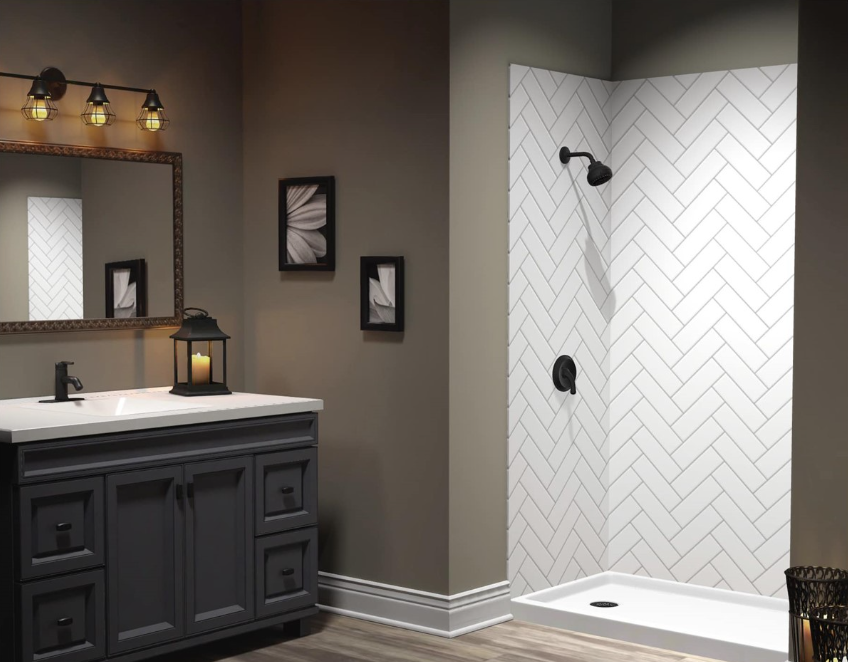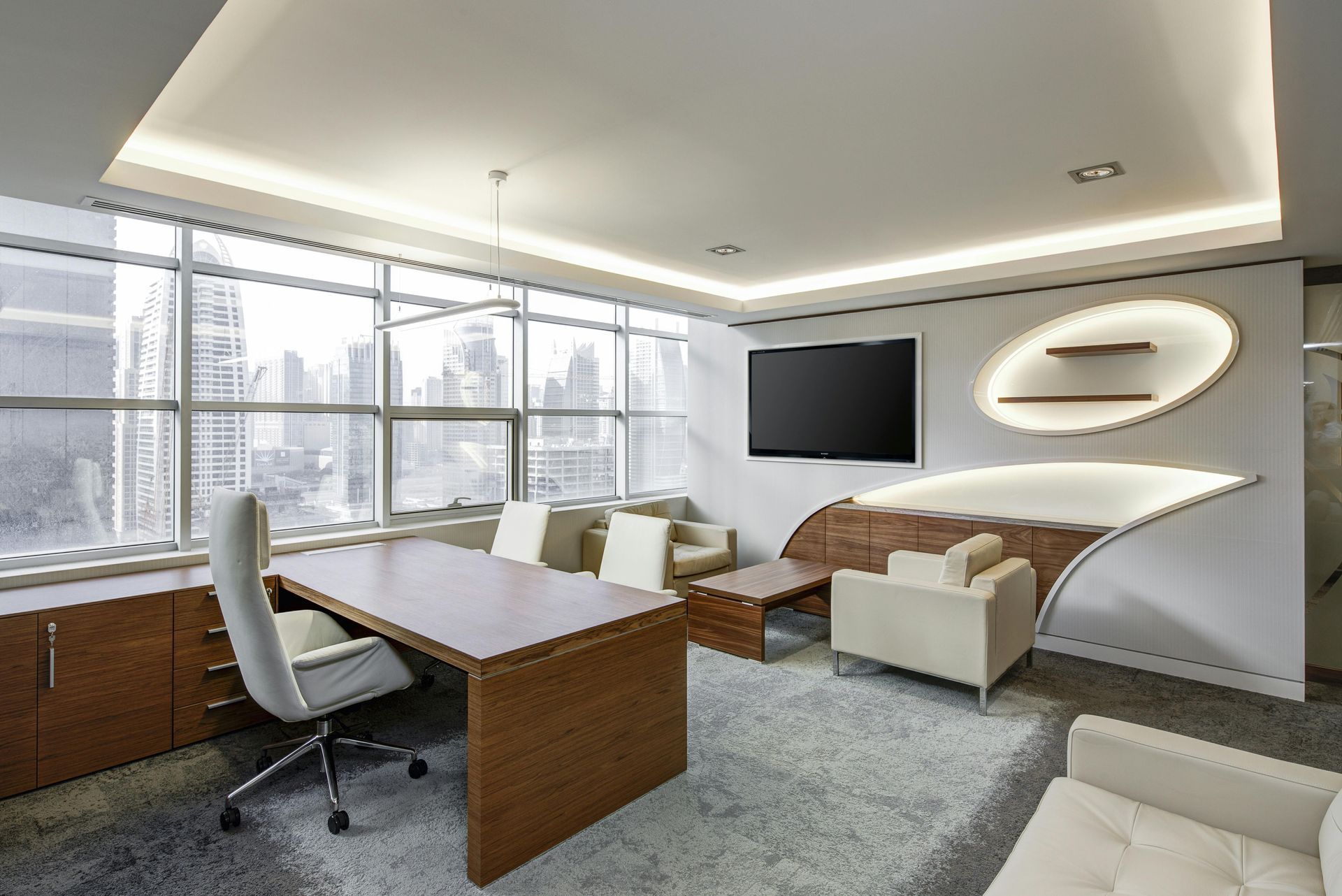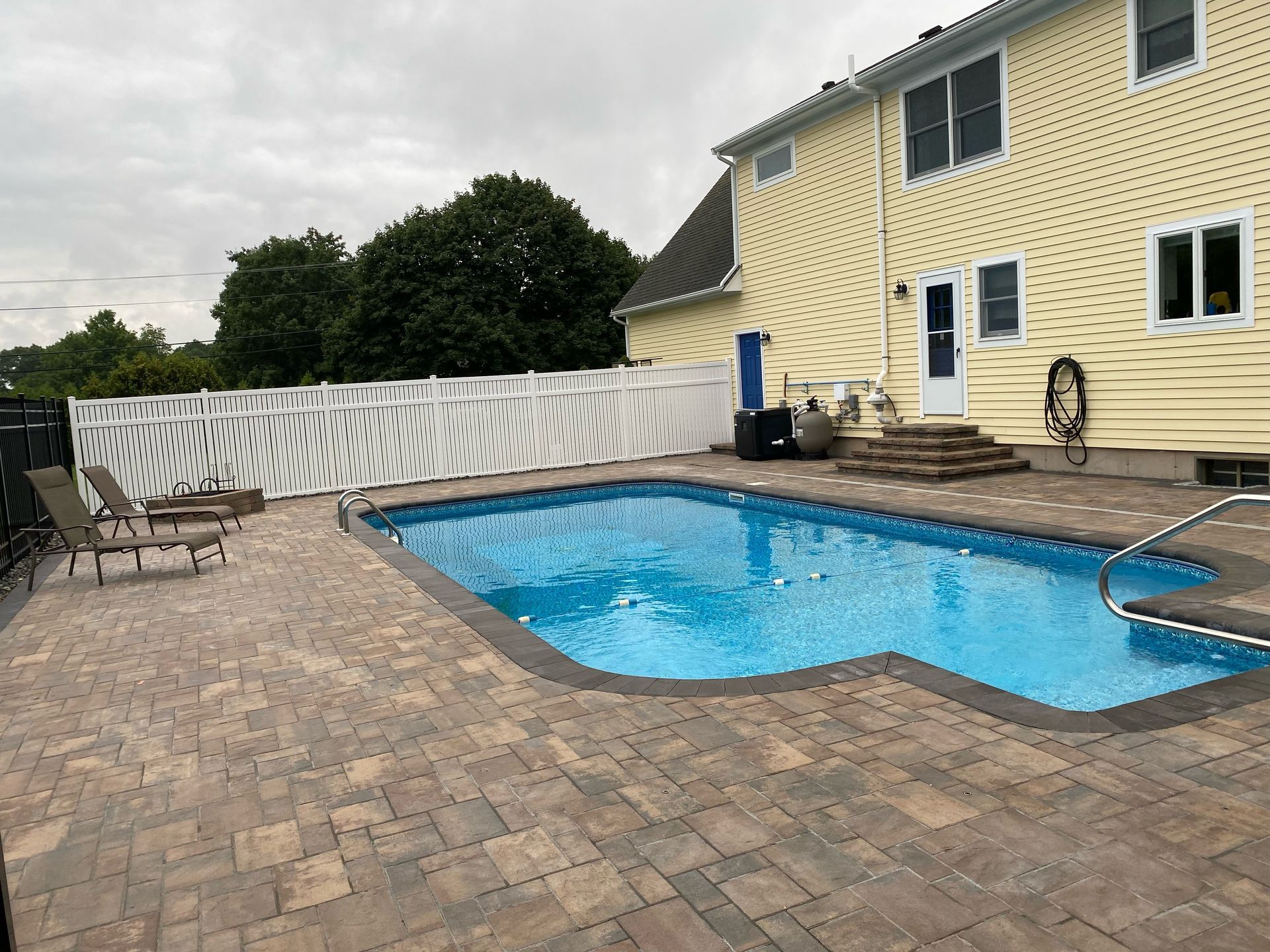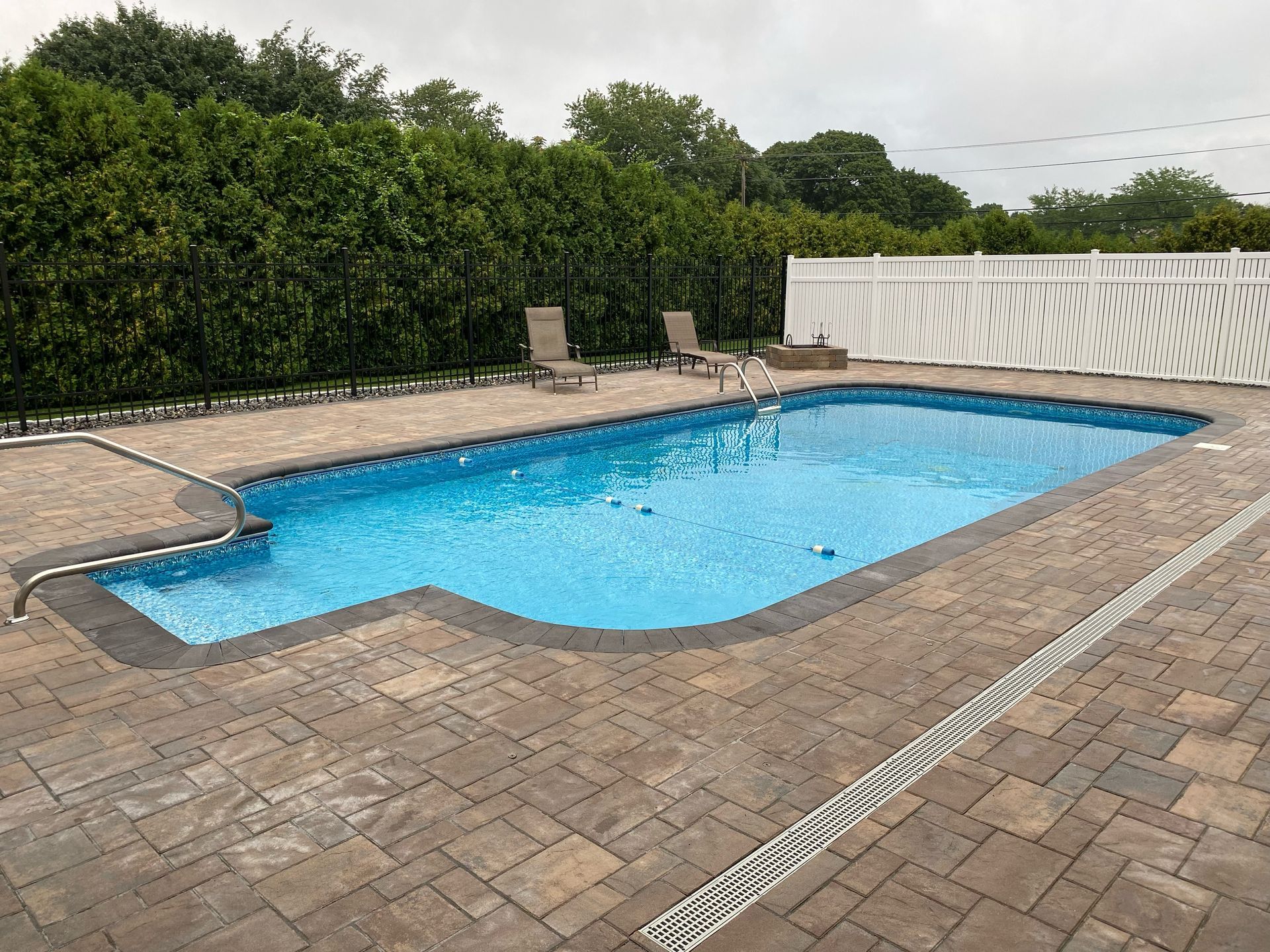Best flooring for Rhode Island basements
Rhode Island's coastal climate creates unique challenges for basement flooring, with high humidity levels, frequent temperature fluctuations, and potential moisture issues affecting homes from Providence to Newport. Understanding which flooring materials can withstand Rhode Island's humid summers and cold, damp winters is crucial for creating a functional, long-lasting basement space.
What Is the Best Flooring for Rhode Island Basements?
The best flooring for Rhode Island basements is luxury vinyl plank (LVP) or waterproof vinyl tile, as it provides excellent moisture resistance, durability, and comfort underfoot while withstanding the state's high humidity levels and temperature fluctuations. For most homeowners, vinyl plank or tile is the best choice, providing style, durability, and waterproof performance.
Quick Flooring Rankings for Rhode Island Basements
Top Choice: Luxury Vinyl Plank (LVP)
- Cost: $3-8 per square foot
- Waterproof and humidity-resistant
- Comfortable underfoot with insulation properties
- Easy maintenance and repair
Runner-Up: Porcelain Tile
- Cost: $5-12 per square foot
- Excellent for high-moisture areas
- Durable and long-lasting
- Cool surface ideal for hot, humid summers
Third Choice: Epoxy Coatings
- Cost: $3-7 per square foot
- Seamless moisture barrier
- Easy to clean and maintain
- Industrial appearance may limit design options
Understanding Rhode Island's Basement Climate Challenges
Coastal Humidity Impact
Rhode Island's coastal location creates specific basement environment challenges:
High Humidity Levels:
- Humidity is high in the coastal region during summer months
- Excessive moisture can lead to mold growth, structural damage, and decreased indoor air quality in Rhode Island properties
- Basements naturally collect moisture from ground contact
- Poor ventilation amplifies humidity problems
Temperature Variations:
- Temperature typically varies from 21°F to 83°F throughout the year
- Rapid temperature changes cause condensation issues
- Ground temperature moderation affects basement conditions
- Seasonal heating and cooling cycles stress flooring materials
Common Rhode Island Basement Issues
Moisture Problems:
- Groundwater seepage through foundation walls
- Condensation from humid air meeting cool surfaces
- Poor drainage around foundation perimeter
- Hydrostatic pressure from saturated soil
Structural Considerations:
- Many homes built slab-on-grade without insulation or vapor barriers
- Older homes (pre-1980) often lack proper moisture barriers
- Concrete floors may have settling cracks allowing moisture entry
- Limited natural ventilation in below-grade spaces
Top Basement Flooring Options for Rhode Island
1. Luxury Vinyl Plank (LVP) - Best Overall Choice
Why LVP Excels in Rhode Island Basements: For most homeowners, vinyl plank or tile is the best choice, providing style, durability, and waterproof performance. LVP handles moisture exceptionally well while providing comfort and aesthetic appeal.
Rhode Island Performance Benefits:
- 100% waterproof construction prevents moisture damage
- Handles humidity fluctuations without expansion or contraction
- Insulating properties provide warmer surface temperatures
- Easy replacement of damaged planks without full floor replacement
Installation Considerations:
- Click-lock systems allow floating installation over concrete
- No adhesive required, reducing installation time and cost
- Subfloor preparation crucial for long-term performance
- Vapor barriers recommended for concrete installations
Cost Analysis:
- Material cost: $3-8 per square foot
- Professional installation: $2-4 per square foot
- DIY installation possible for skilled homeowners
- 15-25 year expected lifespan with proper maintenance
Design Options:
- Wood-look planks provide warm, natural appearance
- Stone and tile patterns available
- Multiple thickness options (4mm-8mm) for different needs
- Textured surfaces improve slip resistance
2. Porcelain Tile - Superior Moisture Resistance
Excellent Choice for High-Moisture Areas: Porcelain tiles are a great water-resistant option, perfect for damp areas of the home like a bathroom or basement, and they work well in extremely humid climates.
Rhode Island Climate Advantages:
- Impervious to moisture absorption (less than 0.5%)
- Thermal mass helps moderate temperature swings
- Cool surface provides relief during humid summers
- Resistant to mold and mildew growth
Installation Requirements:
- Proper waterproof membrane essential over concrete
- Professional installation recommended for best results
- Heating cables can be installed underneath for winter comfort
- Quality grout and sealers crucial for moisture protection
Maintenance Benefits:
- Easy to clean with standard household products
- Stain-resistant surface handles basement activities
- Long-term durability reduces replacement costs
- Individual tile replacement possible for repairs
Design Flexibility:
- Unlimited color and pattern options
- Large format tiles minimize grout lines
- Natural stone and wood looks available
- Decorative borders and inlays possible
3. Epoxy Floor Coatings - Industrial Strength Solution
Professional-Grade Moisture Protection: Epoxy floor coatings are a great option for basements, providing permanent waterproofing solutions trusted for over 25 years.
Rhode Island Application Benefits:
- Breathable epoxy systems can hold back up to 10lbs of vapor pressure while allowing 3lbs to pass through
- Seamless surface eliminates moisture entry points
- Chemical resistance handles basement storage needs
- Easy to clean and maintain for active use
System Types:
- Standard epoxy: Basic moisture protection and durability
- Self-leveling epoxy: Corrects minor concrete imperfections
- Decorative systems: Color flakes and metallic finishes available
- Anti-slip additives: Important for safety in moist conditions
Installation Process:
- Concrete surface preparation critical for adhesion
- Multiple coats required for optimal performance
- Professional application recommended for best results
- Curing time requires space to be out of service
Cost Considerations:
- Material cost: $2-5 per square foot
- Professional installation: $3-7 per square foot
- Long-term durability offsets initial investment
- Minimal maintenance reduces ongoing costs
4. Engineered Hardwood with Moisture Barriers
Limited Recommendation for Controlled Environments: Engineered hardwood can work in Rhode Island basements with proper moisture control and installation techniques.
When Engineered Hardwood Works:
- Basement has effective dehumidification system
- Proper vapor barriers installed over concrete
- Climate control maintains consistent temperature and humidity
- Professional installation with moisture-resistant adhesives
Rhode Island Challenges:
- High humidity can cause expansion and cupping
- Moisture infiltration leads to mold and decay
- Temperature fluctuations stress wood fibers
- Replacement costs high if moisture damage occurs
Protective Measures:
- Continuous dehumidification required (target 30-50% RH)
- Vapor barriers essential over concrete subfloors
- Expansion joints needed for seasonal movement
- Regular monitoring and maintenance required
5. Raised Subfloor Systems
Advanced Moisture Management: Raised subfloor systems involve installing a grid network of supports on top of the existing concrete slab, providing superior moisture protection.
System Benefits:
- Air circulation prevents moisture accumulation
- Thermal break improves comfort and energy efficiency
- Access to utilities maintained underneath
- Compatible with various finish flooring materials
Rhode Island Applications:
- Ideal for basements with minor moisture issues
- Raised carpet tiles feature plastic base materials that resist moisture
- Professional installation ensures proper drainage
- Higher initial cost but long-term moisture protection
Compatible Finish Materials:
- Carpet tiles with moisture-resistant backing
- Laminate flooring over integrated vapor barriers
- Engineered hardwood with proper acclimation
- Luxury vinyl for ultimate moisture protection
Flooring Materials to Avoid in Rhode Island Basements
Solid Hardwood
Why It Fails in Rhode Island:
- Absorbs moisture causing warping and cupping
- Mold and rot issues in high humidity
- Expensive to replace when damaged
- Cannot handle temperature fluctuations
Standard Laminate
Moisture Vulnerability:
- Core materials swell when exposed to moisture
- Edge sealing often inadequate for basement conditions
- Cannot be refinished if water damage occurs
- Warranty typically void in basement applications
Carpet and Padding
Health and Maintenance Issues:
- Traps moisture leading to mold growth
- Difficult to dry completely if flooding occurs
- Attracts dust mites and allergens
- Absorbs odors and chemicals from basement environment
Unsealed Concrete
Problems with Bare Concrete:
- Dusting and powder creation ongoing issue
- Absorbs stains and odors permanently
- Cold surface uncomfortable for activities
- Potential for efflorescence (white mineral deposits)
Installation Best Practices for Rhode Island Basements
Moisture Assessment and Preparation
Pre-Installation Testing:
- Plastic sheet test for moisture vapor transmission
- Calcium chloride moisture tests for concrete slabs
- Humidity monitoring over several seasons
- Professional moisture assessment for problem areas
Surface Preparation:
- Concrete crack repair and leveling
- Proper cleaning and degreasing
- Acid etching or grinding for smooth surfaces
- Moisture mitigation systems if required
Vapor Barrier Installation
Critical for Rhode Island Success:
- 6-mil polyethylene minimum thickness
- Complete coverage with sealed seams
- Proper overlap and tape sealing
- Professional installation for best results
Advanced Moisture Control:
- Epoxy vapor barriers for severe moisture issues
- Drainage systems for active water infiltration
- Sump pump installation if flooding risk exists
- Dehumidification systems for ongoing moisture control
Climate Control Integration
Essential System Considerations:
- EPA recommends maintaining indoor relative humidity between 30-50%
- Proper ventilation to prevent stagnant air
- Heating systems to maintain consistent temperatures
- Insulation to prevent condensation on cold surfaces
Cost Analysis for Rhode Island Basement Flooring
Total Project Costs (500 sq ft basement)
Luxury Vinyl Plank Installation:
- Materials: $1,500-4,000
- Professional installation: $1,000-2,000
- Preparation and vapor barrier: $500-1,000
- Total project cost: $3,000-7,000
Porcelain Tile Installation:
- Materials: $2,500-6,000
- Professional installation: $2,000-4,000
- Waterproofing and preparation: $800-1,500
- Total project cost: $5,300-11,500
Epoxy Coating System:
- Materials: $1,000-2,500
- Professional installation: $1,500-3,500
- Surface preparation: $500-1,200
- Total project cost: $3,000-7,200
Long-Term Value Considerations
20-Year Cost Analysis:
- Initial installation costs
- Maintenance and cleaning expenses
- Replacement or refinishing needs
- Energy costs for climate control
- Property value impact
Factors Affecting Costs:
- Basement size and complexity
- Existing condition of concrete floor
- Moisture mitigation requirements
- Access and logistics challenges
Maintenance Requirements for Rhode Island Basements
Ongoing Care by Flooring Type
Luxury Vinyl Maintenance:
- Regular cleaning with approved vinyl cleaners
- Prompt cleanup of spills and moisture
- Periodic deep cleaning for high-traffic areas
- Replacement of damaged planks as needed
Porcelain Tile Care:
- Daily sweeping or vacuuming
- Weekly mopping with pH-neutral cleaners
- Annual grout cleaning and sealing
- Individual tile replacement for damage
Epoxy Floor Maintenance:
- Regular sweeping and mopping
- Occasional deep cleaning for stained areas
- Re-coating every 5-10 years for appearance
- Crack monitoring and repair as needed
Seasonal Maintenance Tasks
Spring Preparation:
- Inspect for winter damage or moisture issues
- Clean and test dehumidification systems
- Check vapor barriers and seals
- Document any changes in floor condition
Fall Winterization:
- Prepare heating systems for consistent temperatures
- Seal any new cracks or gaps
- Ensure proper drainage around foundation
- Stock maintenance supplies for winter months
Choosing the Right Flooring for Your Rhode Island Basement
Assessment Questions
Moisture Evaluation:
- Does your basement have active moisture issues?
- How humid does the space become during summer?
- Have you experienced flooding or water infiltration?
- What is the condition of existing vapor barriers?
Usage Planning:
- How will the basement space be used?
- Do you need comfortable surface temperatures?
- Are there specific aesthetic requirements?
- What is your maintenance tolerance level?
Budget Considerations:
- What is your total project budget?
- Can you handle installation in phases?
- How long do you plan to stay in the home?
- Are there financing options available?
Professional Consultation Benefits
Expert Assessment:
- Professional moisture testing and evaluation
- Proper material selection for specific conditions
- Installation planning and timeline development
- Warranty and guarantee coverage
Quality Installation:
- Proper surface preparation and moisture barriers
- Professional tools and installation techniques
- Code compliance and permit handling
- Long-term performance optimization
Rhode Island Building Codes and Regulations
Local Requirements
Basement Renovation Codes:
- Ceiling height requirements for habitable spaces
- Egress window requirements for bedrooms
- Electrical code compliance for basement installations
- Moisture control and ventilation standards
Permit Requirements:
- When permits are required for basement finishing
- Inspection schedules and requirements
- Professional licensing requirements for installers
- Insurance and liability considerations
Regional Variations
Municipal Differences:
- Providence: Urban density and older home considerations
- Warwick: Suburban basement finishing standards
- Newport: Historic district restrictions and requirements
- Coastal towns: Flood zone and storm surge considerations
Future Trends in Rhode Island Basement Flooring
Technology Advances
Smart Flooring Systems:
- Integrated heating cables with smartphone controls
- Moisture sensors with automatic alerts
- Anti-microbial surface treatments
- Improved installation techniques and tools
Sustainable Options:
- Recycled content flooring materials
- Low-VOC installation products
- Energy-efficient heating integration
- Renewable material sourcing
Climate Adaptation
Preparing for Climate Change:
- Rising temperatures and shifting rainfall patterns likely to increase flood and drought intensity
- More extreme humidity variations expected
- Enhanced moisture management systems needed
- Long-term durability planning essential
Ready to transform your Rhode Island basement with professional flooring installation? Rockhouse Construction specializes in basement flooring solutions throughout Providence, Warwick, Newport, and surrounding communities. Our experienced team understands Rhode Island's unique moisture challenges and uses only materials proven to perform in the state's coastal climate. From luxury vinyl plank and porcelain tile to epoxy coatings and advanced moisture mitigation systems, we provide complete basement flooring services tailored to your specific needs and budget. Contact us today for a comprehensive consultation and ensure your basement flooring investment provides lasting beauty and performance for years to come.
